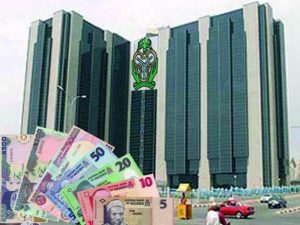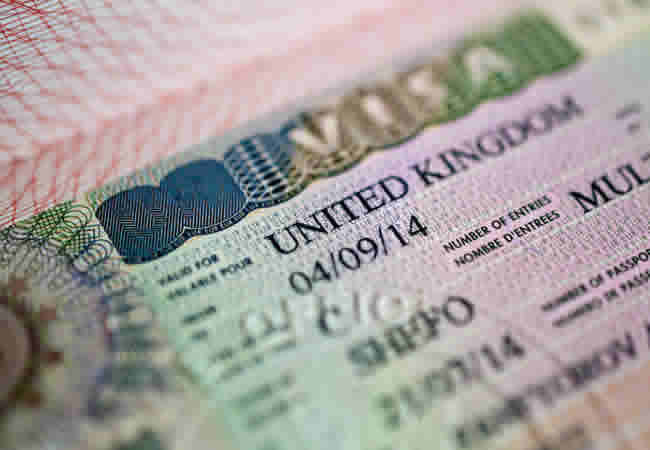Naira, Nigeria’s unit of exchange, has crashed to N545/$1, lowest level in its 48-year history
The exchange rate between the naira and the US dollar closed at N411.67/$1, at the official Investors and Exporters window, last week Meanwhile, the exchange rate at the parallel market where the majority of Nigerians patronize slumped to a new record on Friday to close at N545/$1.
The naira has suffered devaluation at the parallel market and many stakeholders have expressed their concern as foreign currencies scarcity persists. Some traders have attributed the increase in the price of certain food items to the scarcity of forex, which is affecting the cost of importation. Foreign school fees season, Festive season, travel season is around the corner, demand for forex would only increase.
READ ALSO: N1.8 bn fraud rocks Sterling Bank + how Bank staff stole customer’s money
Naira crashes to N505/$ as CBN scraps Forex sale to Bureau de Changes
How Nigeria Popular First Class Monarch, Emir of Bungudu, was Kidnapped
EXCLUSIVE: Letter conferring Oil State’s Status on Kogi Obtained
DPR confirms Platforms Africa Exclusive Story on Shakeup, Deputy Directors
As long as foreign exchange and naira valuation are concerned, we run in circles and when we take other routes – we end up in cul-de-sacs. Here is a brief timeline of events.

Chronicle of the fall and fall of naira
27th of July: The Central Bank of Nigeria says the Bank would channel more foreign exchange to commercial banks for consumers who had legitimate needs.
28th of July: The Central Bank of Nigeria discontinues FX sales to BDC and stops issuance and processing of new licenses for bureau de change operators.
READ ALSO: UBA, GTBank, FirstBank 5 Others’ Branches Shut Over N456m Tax Liability
Role Fidelity Bank, staff played in Nigeria’s N1.5bn Pension scam – EFCC
EXCLUSIVE: Customers Kick as GTBank’s Network Glitch Drags into Second Week
29th of July: The Body of Bank Chief Executive Officers (CEOs) said the banking industry is ready to sell foreign exchange and assured Nigerians “The rate will come down. Very soon, you will buy at N423 or N425 at most.”
30th July: Naira gained N8 as the bullish talk by Banks made price appreciate from N525 to N517.
9th August 2021: Naira was selling at N510 to a dollar as banks set up FX sale points at teller points to serve customer’s foreign exchange needs.
13th August 2021: Banks accuse customers of using expired travel tickets, fake passports to obtain forex.
25th of August: Forex fraud persists as CBN directs banks to publish names, BVN of defaulters. EFCC gets involved.
30th August: Naira returns to N520 to a dollar at the parallel market as businessmen and importers
claim that despite their willingness to buy at any price, “there isn’t just enough dollar.”
7th September: CBN says it is not worried about the valuation of naira but only concerned about boosting dollar supply on the currency market. The naira hit a record low of 532 to a dollar.
10th September: Breaking news! Naira trades at N545 – the lowest level in its 48-year history.
Bone of contentions
Although the Central Bank paints that picture, the burden of “boosting supply into the economy” is not only for them to bear. It is a combination of monetary and government policies. The aspect of monetary policy is in their jurisdiction as the Apex bank coordinates central bank activities that are directed toward influencing the quantity of money and credit in an economy.
But government policy refers to the government’s decisions that affect the economy. The Central Bank is not responsible for policies that would attract investment into the country, ease of doing business, diversification of revenue, the infrastructural provision that would help local production and curb excess importation, and the incessant importation of petroleum products into the country.
The dependence on oil revenue has continued to prove its unreliability. As much as two-thirds of Nigeria’s crude for October exports have yet to find buyers. India and Europe are not buying as before. The Indian Oil Corporation, our largest Asian buyer is purchasing little drops of our oil.
Contextually, they are currently purchasing 1-2 million barrels per week, which is relatively lower than the 20 million barrels per month they bought before the pandemic. Additionally, Nigeria’s crude oil production plunged to a record low of 1.24 million barrels per day last month as a result of lingering disruptions at the key Forcados export terminal. Nigeria’s supply forecast looks to stay below OPEC’s quota as operational setbacks continue. So the country currently has a demand and supply problem.
Another enemy of the naira is importation. The largest oil producer in Africa in the 2nd Quarter of 2021 imported lubricating oil, gas oil, and petrol at 68 billion, 152 billion, 782 billion naira respectively. Money paid for these products are sourced in dollars and the inadequacy of our refineries means we need to import more.
The Central Bank has also told manufacturers to source raw materials locally and has issued the same advice to traders that local production is the way to go. The Central Bank’s overarching embrace of the Federal Government’s duties will only continue.
One key factor in the death of the naira is the dearth of significant players in the foreign exchange space. There is the belief that the CBN should re-introduce the Bureau De Change operators. A foreign exchange market with regulated and informed BDC operators will kill speculative activity at the parallel market.
To corroborate this stance, we will examine Milton’s Friedman paper “The Case for Flexible Exchange Rate.”
Milton Friedman presents a more positive view of speculators and argues that speculative noise traders will be brushed aside by informed speculators. Friedman argues that “speculation will only be destabilizing if speculators are uninformed, trading on noise with a tendency to buy when prices are high and sell when prices are low.” For Friedman, informed speculators can help to stabilize markets.
Intuitively what this suggests is the market needs informed speculators. In Nigeria’s case, the Bureau De Change operators can play this role and their re-introduction would boost market sentiment signifying “supply” and not “tightening” which the country is currently experiencing.
A ray of hope?
In the meantime, Nigeria’s Finance Minister Zainab Ahmed told reporters that Nigeria will raise about $3 billion selling Eurobonds in the second week of October.
The government has approved to raise $6.1 billion from overseas, “so we are looking at doing half of that in the Eurobond market and the other half from bilateral and multilateral sources,” the minister stated.
This coincides with the report that the CBN is planning to boost dollar liquidity in the short term. The SDRs of $3.35 billion received from the International Monetary Fund have helped shore up the reserves and will help stabilize the currency along with this Eurobond sale. Till then, we hope the naira appreciates and eventually converges with the CBN rate.





